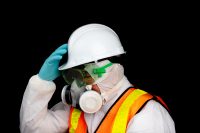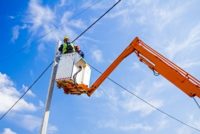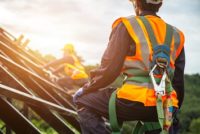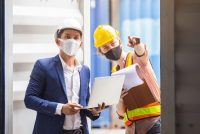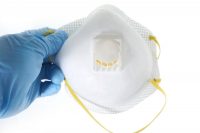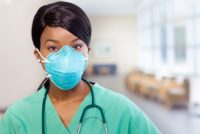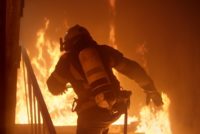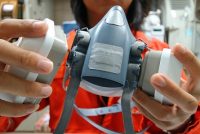Category: Personal Protective Equipment
No safety technology is changing as fast as that employed in PPE. The devices of just a few years ago are now obsolete by replacements that are lighter, easier to use, and more protective. These resources alert you to developments in the field, and equally important, supply training ideas to get your workers to use their PPE, and use it correctly.
Free Special Report: Does Your PPE Program Meet OSHA’s Requirements?
As we navigate the COVID-19 pandemic as both individuals and business people, protection is top of mind. Corporations across the globe are prioritizing protection for their employees in ways they may not have had to before. As someone who’s spent his career focused on materials and products designed to enhance end-user comfort and safety, high-performance […]
With winter weather comes the potential for severe storms—and the aftermath may include the necessity for utility repair work and/or tree removal. Aerial lifts are often employed in these purposes, and one Safety.BLR.com subscriber wanted to know what the fall protection requirements are for this machinery. Read on to see what the experts had to […]
Have you become complacent about safety hazards like falls while focusing on the health hazards of the COVID-19 pandemic? The consequences may be tragic—falls from height are one of the “Fatal Four” safety hazards, along with caught-in or -between, electrocution, and struck-by hazards—and failure to comply with fall protection regulations can result in citations and […]
ASTM International, a standards-setting organization formerly known as The American Society for Testing and Materials, is developing a new specification for face coverings. The Centers for Disease Control and Prevention (CDC) has recommended cloth face coverings for the general public to reduce the number of COVID-19 cases, the Occupational Safety and Health Administration (OSHA) has […]
Filtering facepiece respirators (FFRs) with exhalation valves, as well as a surgical mask or an unregulated face covering, can reduce a wearer’s aerosol emissions, according to a report released on December 9 by the National Institute for Occupational Safety and Health (NIOSH). With modifications, the respirators can offer the same level of source control as […]
The Occupational Safety and Health Administration (OSHA) does not consider cloth face coverings personal protective equipment (PPE), the agency said on November 18 in an update to its frequently asked questions (FAQs) about coronavirus disease 2019 (COVID-19).
The Occupational Safety and Health Administration (OSHA) issued respiratory protection guidance for assisted living, nursing home, and other long-term care facilities. The guidance focuses on the use of respirators while emphasizing a primary reliance upon engineering and administrative controls for controlling exposures, consistent with good industrial hygiene practice and the agency’s traditional adherence to the […]
The National Institute for Occupational Safety and Health signed a memorandum of understanding (MOU) with the National Fire Protection Association (NFPA) and NFPA’s research affiliate, the Fire Protection Research Foundation, to cooperate on issues involving emergency responder personal protective clothing and equipment (PPE), including the development of standards concerning first responder safety, deployment, operations, and […]
The Occupational Safety and Health Administration (OSHA) issued temporary guidance on enforcement of initial and annual fit-testing requirements in the Respiratory Protection standard for Powered Air Purifying Respirators (PAPRs). Enforcement discretion is limited to healthcare personnel or other workers engaged in high- or very high-exposure-risk activities.
On September 14, the National Institute for Occupational Safety and Health (NIOSH) issued a request for information and comment on the deployment to and use of elastomeric half-mask respirators (EHMRs) by emergency medical services (EMS) organizations and in healthcare settings during the ongoing coronavirus diseases 2019 (COVID-19) pandemic (85 FR 56618).

